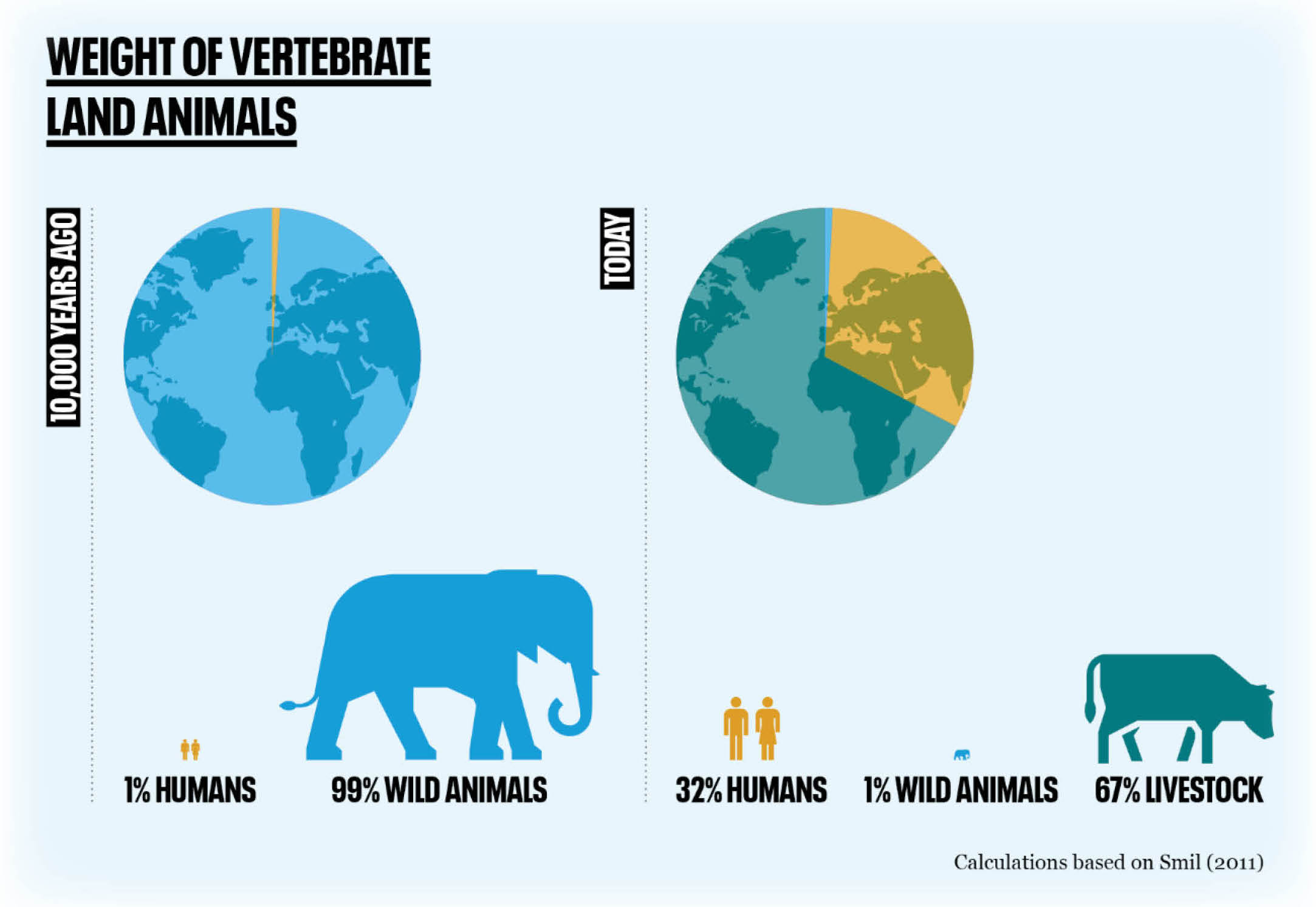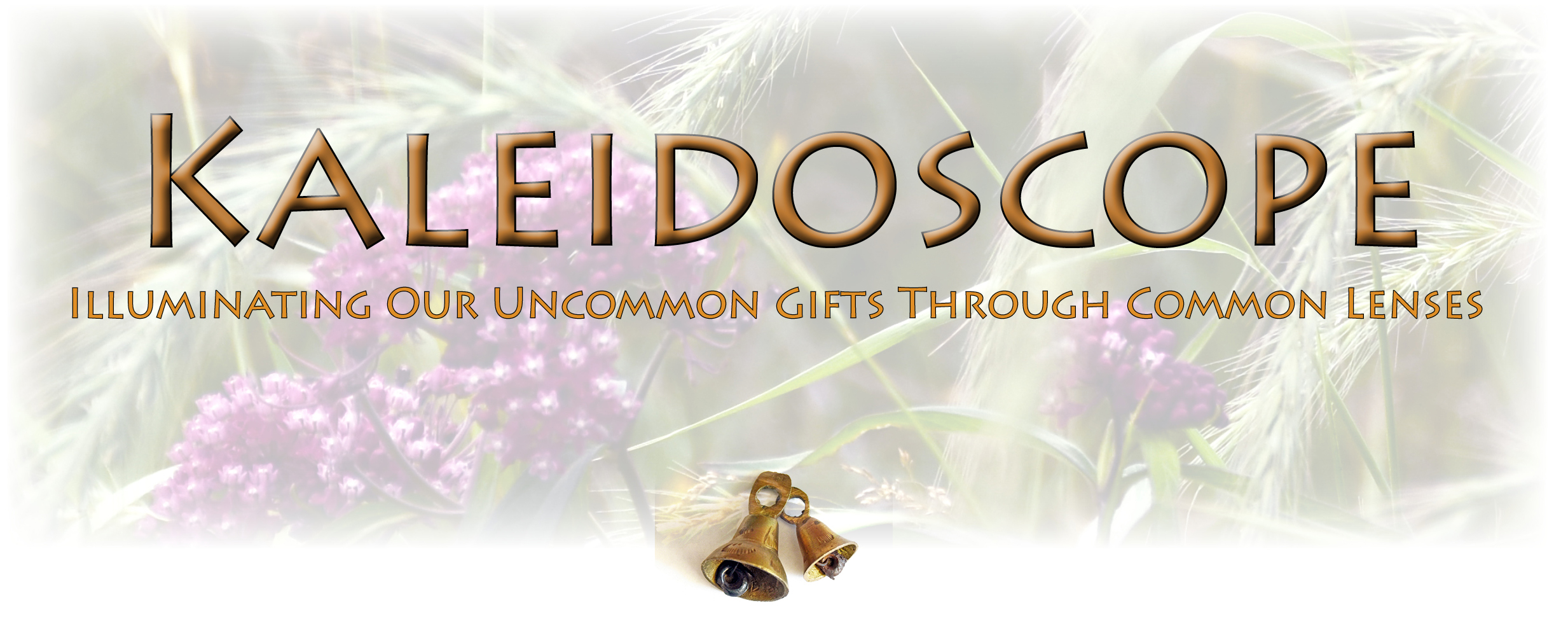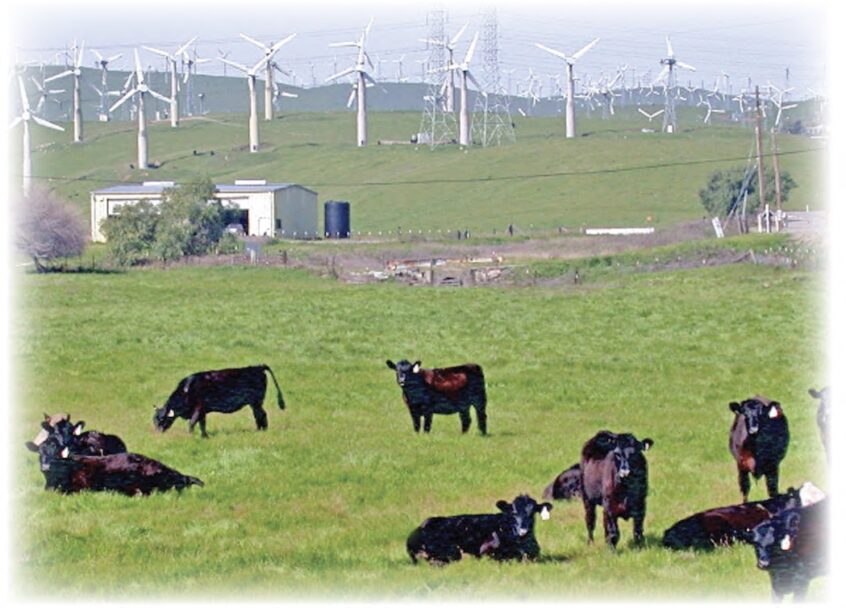Somewhere east of SF between Tracy and Livermore, CA, 2004.
Human beings have overrun the world.
And we are replacing the wild with the tame.
I am of an age that was able see it beginning.
And it’s not that I enjoy saying doom, doom, doom.
On the contrary. I prefer thrill, excitement, pleasure, joy!
But if you have any sense of responsibility, you can’t do that.
~ Sir David Attenborough in an interview with Anderson Cooper on 60 minutes.
I’m guessing that I first encountered the term “Anthropocene” when I met the book The Sixth Extinction, a few years ago. The word means “the epoch of humans.” And, as we are witnessing, and will continue to witness, our impact on all life on earth and on Earth Herself is enormous.
This last week the IPCC (Intergovernmental Panel on Climate Change) released its latest report. A key finding is that unless we change dramatically – and quickly – it is likely that we will reach the ‘tipping point’ of 1.5ºC by the next decade. The tipping point is the point of no return – meaning conditions for life on earth will be very different for millennia to come. My summary of the main points of the report are that 1) the impacts of climate change are more widespread and more severe than expected, 2) short term we are locked into impacts worse than we’ve seen so far, 3) immediate human adaptation is crucial, 4) there will be increased suffering and people will be on the move, and 5) some impacts are already too severe to mitigate.
As if that wasn’t enough, yet another UN report was released as well. This one is about water. It is entitled “Water – at the center of the climate crisis.” It’s a joint report from UNICEF and WHO that says, “1 in 3 people globally do not have access to safe drinking water.” That’s today. The report goes on to say that that number will double in the coming decades. Humans – All Life – cannot live without water.
One beloved and legendary soul who apparently still believes it’s still possible to restore our world is naturalist and BBC documentarian, Sir David Attenborough. Recently he wrote a book and created a companion film entitled A Life on Our Planet: My Witness Statement and a Vision for the Future. He sketches out four key actions that he sees that we must do to restore balance.
- Stabilize the global population
- Shift to renewable energy
- Restore biodiversity
- End deforestation
What I notice is that I question whether any of the four are doable in the world as it is today. Especially within the next ten years, if the IPCC report is correct!
I truly value Attenborough’s ideas and think they are absolutely wonderful and spot-on. That’s not my issue at all. My issue is more about, realistically, what is truly possible over the next decade, given the nature of our interconnected world and its systemic issues, the impacts of those issues, phenomena such as closed feedback loops, and so on.
For years, I have believed in our ability to create global sustainability as a combination of human ingenuity and agape! I believed it so much that I was compelled to write a book, Leadership in a Challenging World, based on that premise. I believed we could find a step-change, a leap, that, when applied to our global system, would easily and rapidly change everything for the better. I notice that, today, my thinking and my beliefs have changed. When and how did that happen? I’m not sure and I wish it hadn’t. But, in truth, it has. Following are just the tip of the iceberg of my current ‘reality-based thoughts’ about Attenborough’s four recommendations for today’s world.
1. Stabilize the global population: When Attenborough started his work, the human population on earth was just over 2.5 billion. Today it is over 8 billion. That means the population in the 1950s was about 1/4th what it is today. Or, said another way, there are almost four times as many humans on the planet today as there were in the 1950s. And they all need food, water, shelter, and so on. According to the World Population Review about 735,000 babies are being born every day and 332,000 people are dying. Population is a runaway train with almost a half million new babies coming on board every day. I don’t see any way of stabilizing the growth. Especially given the moral and ethical value we place on human life. Though our beliefs may be vastly different from each other, collectively most of us revere life and love babies!
2. Shift to renewable energy: Just consider that, as I wrote a couple of weeks ago in Transmission Interconnection, generating enough renewable energy appears to be completely in the realm of possibility. However, the problem, just in the US for starters, is that the electrical grid is both archaic and already at capacity. As a result, getting the energy to where it can be well-used and determining who is going to pay for the upgrades necessary to make it happen, appears to be, in some cases, an insurmountable or almost insurmountable hurdle that, at a minimum, slows down the entire process.
3. Restore biodiversity: There was a time, prior to the advent of agriculture, when 99% of the mass of land vertebrates was wild animals and 1% was humans. Today, a whopping 67% of the mass is livestock, 32% is humans, and 1% is wild animals. So livestock and humans now constitute 99% of the mass of land vertebrates. Currently, fully 50% of habitable land is devoted to grazing livestock and growing food for them. With so much land being devoted to livestock, the habitat for wild animals just isn’t there anymore.

4. End deforestation: This is tied directly to land that is devoted to grazing livestock. I remember a class I took when I was a graduate student: South American Geography. The professor told us that humans would never tame the Brazilian rainforest. It would always come back. However, in the meantime, much of the rainforest has been destroyed by logging and fire and replaced with pasture for livestock. In any case, even if we did have land to devote to forest, renewing takes time. We can plant trees but we only have a decade and they need more than a decade to mature.
So to wrap it up, I think Attenborough’s four recommendations are beautiful and ideal. But I don’t see the individual and collective will to dramatically change the way we live in the world as it is today – even with 8 billion souls and growing. We privileged ones have become accustomed to and addicted to conveniences such as unlimited energy for our homes and cars, products wrapped in single use plastic packaging, clean fresh water, delicious animal protein, and so on. And, might I say, I am first among us. I do my best to do my part but I seriously question how my individual effort can truly make a difference if everyone else doesn’t participate as well. In the US alone, would 350 million people agree to change their current individual and collective habits? Hard to see. So I get to: Why bother? After all, I truly enjoy driving across the 45th parallel to take photos in the park, a San Pellegrino mineral water bottled in plastic, staying hydrated with velvety fresh water, and eating a grilled burger or chicken kabobs. So I’m aware that everything I write here is hypocritical at one level while being honest and authentic at another level. And, I imagine, this may be where many of us are at this time.
“Someone asked me, ‘Aren’t you worried about the state of the world?’
I allowed myself to breathe and then I said, ‘What is most important
is not to allow your anxiety about what happens in the world to fill your heart.
If your heart is filled with anxiety, you will get sick, and you will not be able to help.'”
~ Thich Nhat Hanh
Photo by Barbara
Somewhere east of San Francisco
between Tracy and Livermore, CA, 2004.

